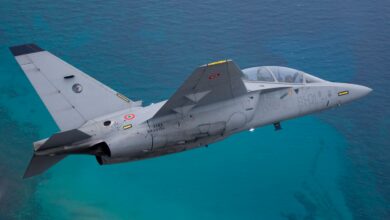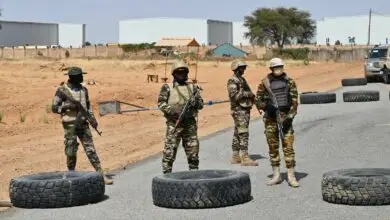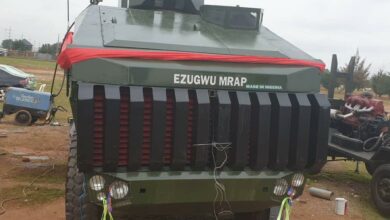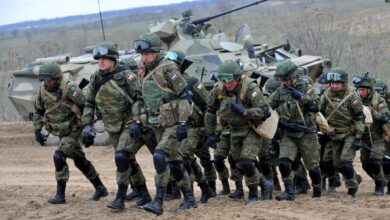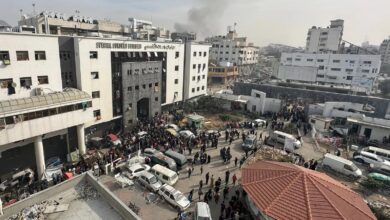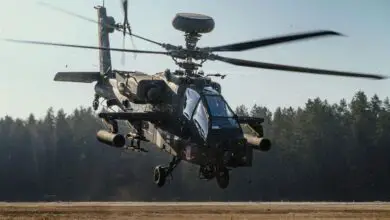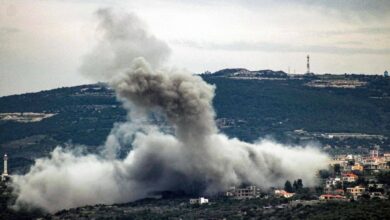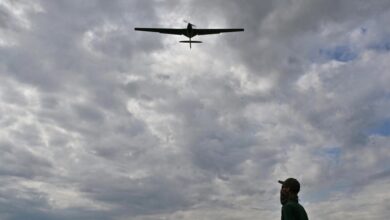Two people were killed and 25 others kidnapped in a Boko Haram ambush on a civilian convoy in remote northeast Nigeria, security sources and a local resident said on Thursday.
The attack on vehicles under military escort happened around 3 p.m. on Tuesday, September 4 near the town of Gwoza, in Borno state, and led to a brief shoot-out.
“A soldier and a civilian were killed in the ambush and a bus carrying around 25 people was taken away,” civilian militia leader Ibrahim Liman told AFP.
The convoy was heading from the town to the Borno state capital, Maiduguri, at the time. A military source in the city confirmed the incident.
“We lost a soldier and a civilian in the attack,” added the officer, who asked not to be identified as he was not authorized to speak to the media.
“We are not sure of the exact number of the abducted passengers but they are more than 20.”
Gideon Buba, who lives in Maiduguri but is from Gwoza, said his priest was on the convoy that was attacked.
“He told us that the bus behind his was the one taken,” he added.
“The gunmen opened fire in the middle of the convoy but the vehicles managed to escape. Some made it through while others returned, but one was seized by the gunmen who took it inside the forest.”
Boko Haram is divided into two factions that have competing goals and operational methods. One, led by Abu Mus’ab Al-Barnawi, largely focuses on attacking the military. It is affiliated to Islamic State and is apparently in talks with the Nigerian government. The other, led by Abubakar Shekau, is notorious for suicide bombings and indiscriminate killings of civilians.
The Gwoza attack was believed to have been carried out by fighters from the Shekau faction, which is based in and around the Sambisa Forest enclave near Gwoza. In August 2014, the jihadists proclaimed Gwoza as the headquarters of its self-styled caliphate.
At the peak of Boko Haram violence in northeast Nigeria in 2014, the military shut down the 128-kilometre (80-mile) Maiduguri-Gwoza highway because of a spate of attacks.
The highway has since been reopened following an extensive regional fightback by Nigerian troops and those from neighboring Chad, Niger and Cameroon.
The counter-insurgency has substantially weakened Boko Haram.
It no longer controls swathes of territory in northeast Nigeria as it did at the height of its insurgency in 2014, yet Boko Haram militants still pose a threat to the region. The insurgency is in its ninth year and has left 20,000 people dead and displaced 2.6 million.
But despite the reopening of the road, civilian convoys need military escorts to plie the route because of sporadic Boko Haram attacks.
Boko Haram has intensified its armed campaign in recent weeks, and has launched a number of major assaults on military bases in the remote northeast region, undermining repeated claims by the military that the jihadist group has been defeated.
On August 30, scores of jihadists in trucks stormed a military base at Zari in northern Borno state killing 48 Nigerian soldiers. That attack is thought to have been launched from nearby Garunda village, where 17 soldiers were killed in a Boko Haram attack on a military base in Garunda on August 8.
Boko Haram militants stormed a military base on the outskirts of Maiduguri, the capital of Borno state, on July 26.
On July 14 jihadists suspected to be from the Barnawi faction attacked a military base in Jilli village, in neighboring Yobe state. Dozens of troops were said to be been killed, wounded or missing. The army at the time conceded the base was attacked but said troops remobilized and succeeded in repelling the attackers.
Attacks have not been limited to military targets. On August 6, seven people were killed in a suspected Boko Haram dawn raid on Munduri village near Maiduguri. Several of those killed were beheaded and the entire village was burned. On August 3, five people were killed and the village of Gasarwa was razed in a similar raid near the garrison town of Monguno.
The government is now encouraging thousands of people displaced by the conflict to return to their homes from makeshift camps in the Borno state capital, Maiduguri. But international aid agencies working in the remote region say conditions are not right for mass returns, particularly in terms of security.
With reporting from AFP


